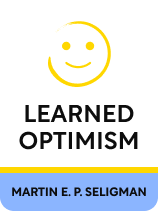

This article is an excerpt from the Shortform book guide to "Learned Optimism" by Martin E. P. Seligman. Shortform has the world's best summaries and analyses of books you should be reading.
Like this article? Sign up for a free trial here.
What was Martin Seligman’s major contribution to psychology? What is the psychology of helplessness? How can you know if you’ve learned helplessness?
Psychologist Martin Seligman’s learned helplessness theory has changed how we understand pessimism and optimism. Perhaps most importantly, Seligman’s theory helps to explain a leading cause of depression and how to treat it by unlearning helplessness.
Read on to learn about Martin Seligman’s learned helplessness theory and why it can lead to depression.
Martin Seligman’s Learned Helplessness Theory
Martin Seligman is a professional psychologist, teacher, and author. Based on his own laboratory studies, Martin Seligman’s learned helplessness theory has become widespread, both in the field of psychology and among laypeople. However, Seligman’s book Learned Optimism was published in 1990, and there have been significant advances in the field of psychology since then.
According to Seligman, people end up trapped in a helpless mindset as a result of modern culture’s overemphasis on personal achievement and self-esteem.
Many people suffer from learned helplessness: the belief that they don’t have the power to make positive changes in their own lives or in the world around them. Martin Seligman’s book, Learned Optimism, teaches you how to break out of that pessimistic, powerless mindset and replace it with an empowered mindset of optimism and confidence.
Why Learned Helplessness May Cause Depression
In psychology, depression is the feeling that nothing is worth doing, or that your actions don’t matter. Therefore, Martin Seligman claims that learned helplessness can lead to depression.
To illustrate this point, Seligman discusses an experiment he performed where people were subjected to a loud, unpleasant noise and presented with a panel of buttons. They were told that they could use the buttons to stop the noise, and they just had to figure out the right combination to press. However, for some subjects, the experiment was rigged—the buttons didn’t do anything, and there was nothing they could do to make the noise stop. In other words, they were helpless. After the experiment, the subjects who couldn’t stop the noise showed symptoms of depression: resignation, lethargy, and feelings of powerlessness.

———End of Preview———
Like what you just read? Read the rest of the world's best book summary and analysis of Martin E. P. Seligman's "Learned Optimism" at Shortform.
Here's what you'll find in our full Learned Optimism summary:
- How to break out of a pessimistic, powerless mindset
- How to develop a mindset of empowerment, optimism, and confidence
- How to balance your optimism with realism






